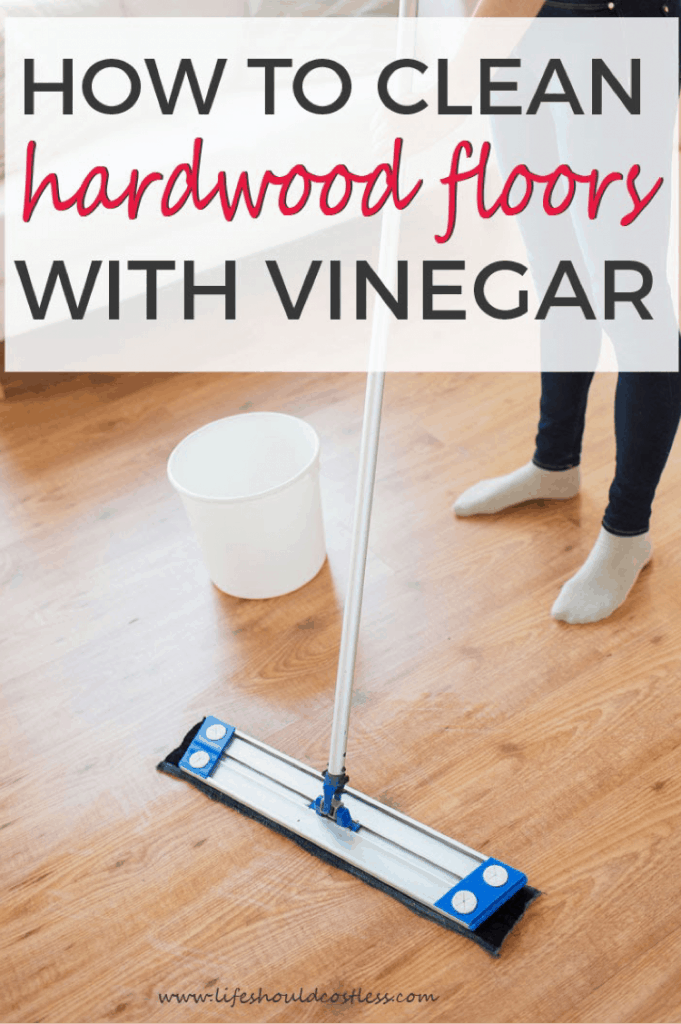You’ve just mopped your vinyl floors, and they still look a little hazy. You hear that vinegar is a miracle cleaner, so you wonder, “Can I use vinegar on my vinyl flooring?” The answer, as with most things cleaning-related, is a little more complex than a simple yes or no. While vinegar boasts a reputation as an eco-friendly cleaner, it’s not a one-size-fits-all solution for every type of flooring. Understanding the nuances of vinegar’s interaction with vinyl can help you make the right cleaning decisions for your home.

Image: flooring.sampoolman.com
Vinyl flooring, a popular choice for its durability and affordability, comes in various finishes. Whether your vinyl floor is matte, glossy, or textured, its surface can be susceptible to different cleaning methods. Vinegar, a natural acidic solution, can be a useful cleaning agent, but its acidity can also be detrimental to certain materials. To understand the potential downsides of using vinegar on vinyl flooring, it’s crucial to understand the different types of vinyl floor finishes and their specific maintenance needs.
The Pros and Cons of Using Vinegar on Vinyl Flooring
Vinegar’s natural acidity offers a few key advantages for cleaning:
- Disinfection: Vinegar is effective at killing bacteria and mold, making it a valuable tool for sanitizing surfaces.
- Deodorizer: Its natural odor-neutralizing properties can help remove unpleasant smells from your floors.
- Surface Shine: Diluted vinegar solutions can leave your vinyl floor with a subtle sheen.
- Cost-Effective: Vinegar is inexpensive and readily available, making it an attractive cleaning option.
However, there are also downsides to consider:
- Potential Damage: Vinegar’s acidity can damage certain vinyl flooring finishes, particularly those with a high gloss or a delicate coating. It could lead to dulling, etching, or even stripping the protective layer of the flooring.
- Color Fading: The acidic nature of vinegar can potentially fade the color of some vinyl floors, especially lighter shades.
- Unwanted Reactions: In some cases, vinegar mixed with certain cleaning products can react negatively, leaving streaks or residue on the floor.
Understanding Different Vinyl Floor Finishes
The type of vinyl floor finish you have plays a crucial role in whether or not vinegar is a suitable cleaner. Here’s a breakdown:
1. No-Wax Vinyl
No-wax vinyl is designed for easy maintenance. It has a protective layer that prevents dirt and grime from penetrating the surface. For these floors, using a mild vinegar solution (1 part vinegar to 10 parts water) may be a safe cleaning option. It’s essential to test the solution on an inconspicuous area first to check for any discoloration or damage.

Image: yourniftyhome.com
2. Waxed Vinyl
Waxed vinyl involves applying a protective wax coating over the flooring. While vinegar can remove dirt and grime, it can also strip away the wax layer, leaving your floors vulnerable to scratches and dullness. Always consult the manufacturer’s instructions for specific cleaning recommendations for your waxed vinyl floors.
3. Luxury Vinyl Tile (LVP) and Luxury Vinyl Plank (LVP)
LVP and LVP are durable and stylish flooring options. They often have a protective layer that can be susceptible to the acidity of vinegar. While some LVP manufacturers recommend cleaning with diluted vinegar, others caution against it. Always consult the manufacturer’s care guide for specific cleaning recommendations for your LVP or LVP floors.
Cleaning Tips for Vinyl Flooring
Here are some essential tips for cleaning your vinyl flooring safely and effectively:
- Read Manufacturer’s Instructions: Always start by reviewing the manufacturer’s cleaning guidelines for your specific vinyl flooring.
- Test an Inconspicuous Area: Before using any new cleaning solution, test it on a small, hidden area of your floor to ensure it doesn’t cause any damage.
- Use a Diluted Vinegar Solution: If you decide to use vinegar, always dilute it with water, typically a 1:10 ratio (vinegar to water).
- Avoid Harsh Chemicals: Steer clear of harsh chemicals like bleach or ammonia, as they can damage your vinyl floors.
- Rinse Thoroughly: After cleaning, rinse the floor thoroughly with clean water to remove any soapy residue or vinegar. It’s recommended to use a mop with a microfiber head or a soft-bristled broom.
Alternatives to Vinegar for Vinyl Flooring
If you’re hesitant about using vinegar on your vinyl floors, consider these safe and effective alternatives:
- Mild Dish Soap: Mix a few drops of a mild dish soap with warm water to create a gentle cleaning solution.
- Baking Soda: Make a paste of baking soda and water for spot cleaning stains.
- Commercial Vinyl Floor Cleaners: There are excellent commercially available vinyl floor cleaners specifically designed for cleaning and maintaining these surfaces.
Can I Use Vinegar On Vinyl Flooring
Conclusion
While vinegar can be a useful cleaning agent for some vinyl floors, it’s essential to use it with caution. Always check the manufacturer’s instructions and test the solution on a small, inconspicuous area before cleaning your entire floor. By understanding the nuances of vinegar’s interaction with vinyl and utilizing safe and effective cleaning methods, you can keep your vinyl floors clean and sparkling for years to come. For further information on caring for your vinyl flooring, consider consulting a flooring professional or visiting trusted online resources. Remember, a little research and caution can go a long way in maintaining the beauty and integrity of your floors.





